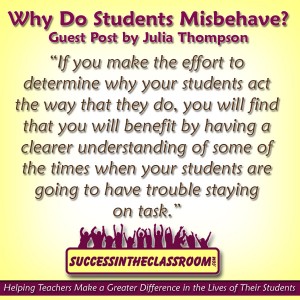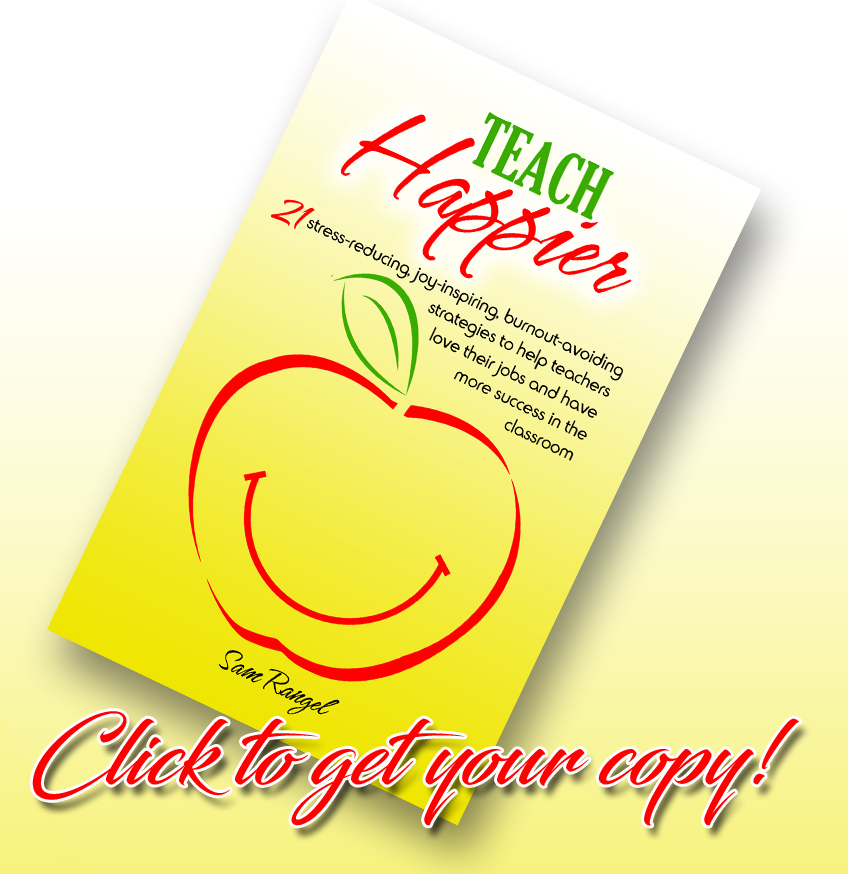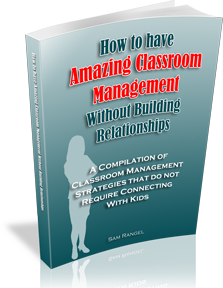I had the extreme pleasure of speaking with Julia Thompson on the Amazing Teacher Podcast back in December of 2013. Julia is a teacher and the author of the book, The First-Year Teacher’s Survival Guide, which is a great resource for new teachers and soon-to-be teachers. I invited her to be on the podcast, and she agreed.
We had a great conversation, and I know my audience was inspired by what Julia shared. I know I was.
Recently, I asked her to write a guest post here on SITC, and she was so kind to agree to share more of her amazing insights with my readers.
Thank you Julia!
Without further ado, here is, “Why Do Students Misbehave? “ by amazing teacher and author, Julia G. Thompson.
Why Do Students Misbehave?
Student misbehavior can make or break a teacher’s day. If you have a solid plan in place to prevent and, if necessary, manage off-task and disruptive behaviors, then your day goes well. So do your students’ days. Everyone wins.
However, when teachers have bad days at school, student misbehavior is often the cause. And if you are having a bad day, so are your students. No one wins.
All teachers have discipline issues to contend with. This is not surprising considering the various forms and the many causes of student misbehavior. From missing pencils to serious fights and all of the permutations between, discipline issues abound in every classroom. Successful teachers find ways to keep misbehavior from ever beginning or to minimize its negative impact once it does.
One very positive step to take to ensure that you and your students have the good day that you had in mind when you made your lesson plans is to examine the causes of their behavior. Whenever you have to deal with a discipline problem, make absolutely sure before you act that you understand the reason for the behavior that you observe. When you do, several beneficial things will happen.
- If there are other causes than what you first noticed, you can act on them.
- You will gain insight into how your students think, feel, and react.
- You and your students have a common ground to discuss other, preferable, choices that they can make in the future.
- You increase the likelihood that you will have prevented this problem from happening again.
- Your bond with your students will be stronger because, even if you enforce unpopular consequences, you have shown them the courtesy of listening and caring about what they had to say.

There are many ways to determine why your students act the way they do. You can be indirect in your approach. Talk to teachers who have taught your students in the past or to parents or guardians. Both can be useful sources of insightful information. You can also check permanent records to find out more about your students’ past, home situation, and ability.
Another approach to handling a behavior problem is to interact directly with the student in private. One way that works well with older students is to first have them write out their view of what caused the behavior. When you discuss it with them, you can refer to what they have described to you in writing.
If you make the effort to determine why your students act the way that they do, you will find that you will benefit by having a clearer understanding of some of the times when your students are going to have trouble staying on task. Here are some common reasons why students misbehave.
- They are excited or upset about an upcoming event or holiday.
- They are having a conflict with a peer.
- They want your attention.
- They want the attention of their peers.
- They finish their work early and want to amuse themselves.
- Their work is too hard or too easy.
- They are distracted by something or someone near them.
- They are worried about something not related to your class.
- They are upset by something that happened at home.
- They don’t know the procedures or rules.
- They are embarrassed.
- They lack the confidence to try for success.
- They don’t feel well.
- They are exhausted from staying up too late.
- They are tired of being told what to do.
Julia G. Thompson received her BA in English from Virginia Polytechnic Institute and State University in Blacksburg. She has been a teacher in the public schools of Virginia, Arizona, and North Carolina for more than thirty-five years. Thompson has taught a variety of courses, including freshman composition at Virginia Tech, English in all of the secondary grades, mining, geography, reading, home economics, math, civics, Arizona history, physical education, special education, graduation equivalency preparation, and employment skills. Her students have been diverse in ethnicity as well as in age, ranging from seventh graders to adults. Thompson currently teaches in Fairfax County, Virginia, where she is an active speaker and consultant. Author of Discipline Survival Guide for the Secondary Teacher, First-Year Teacher’s Checklist, The First-Year Teacher’s Survival Guide,and The First-Year Teacher’s Survival Guide Professional Development Training Kit, Thompson also provides advice on a variety of subjects through her Web site, www.juliagthompson.com; on her blog, juliagthompson.blogspot.com; and on Twitter at https://twitter.com/TeacherAdvice.



